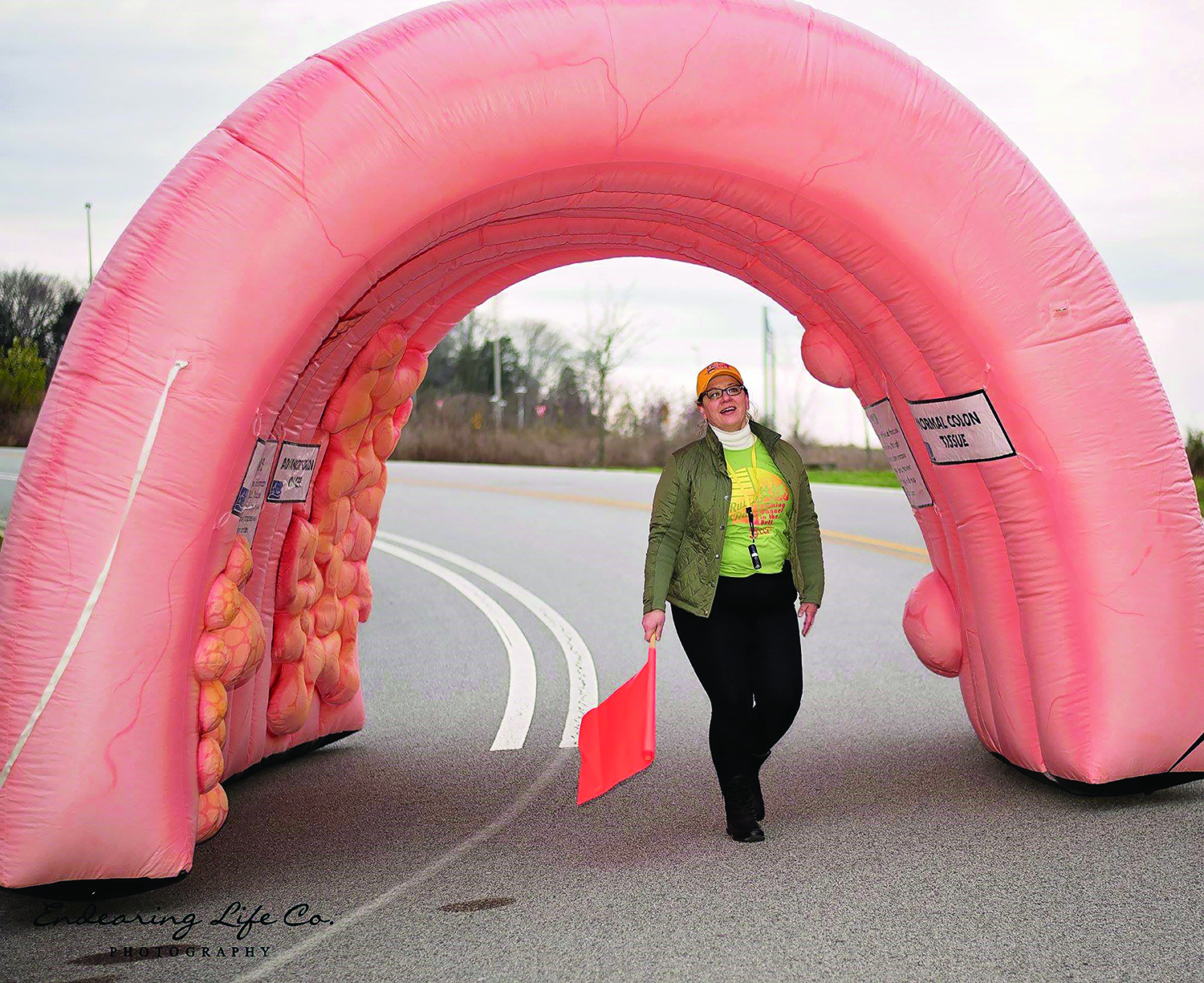"When it comes to colon cancer, you can prevent this terrible disease with one simple test – a colonoscopy. Colon cancer is very easily detected and very successfully treated if caught early," says Shauna Lorenzo-Rivero, MD, colorectal surgeon with University Surgical Associates (USA). "But the fact is in Tennessee and in Chattanooga specifically, the rate for colon cancer is higher than the national average particularly in the black community. Among African American men, the risk of developing colorectal cancer is four times higher than what it is for a white male. You have to do the test to catch the cancer."
Ten years ago, Dr. Lorenzo started thinking seriously about the lack of colorectal cancer awareness after looking specifically at the statistics of colon cancer in Chattanooga and the surrounding areas. There were awareness events for breast cancer and other health conditions, but there was an obvious opportunity to reach out and spread the word about how effective colonoscopies are in detecting, and effectively treating, colorectal cancer. Her mission was clear.
"I started the Greater Chattanooga Colon Cancer Foundation and the Rump Run because I wanted to have more of these open conversations, raise awareness about the disease, and dispel the myths that often circulate about colonoscopies. Not only that, I wanted the money that we raised from our events to stay in Chattanooga and help people right here in our community," says Dr. Lorenzo.
Why does screening matter?
Colon cancer has been called a silent disease because symptoms aren't typically present until the disease is more advanced. That's why the American Society of Colon and Rectal Surgeons (ASCRS) recommends coloscopy screening beginning at age 45 for those without other risk factors. If your first-degree relative (parent, sibling or child) has been diagnosed with colorectal cancer or adenomas before age 60, the recommend screening is a colonoscopy every five years, beginning at age 40 or 10 years before the age of the youngest affected relative (whichever is first).
Dr. Lorenzo concedes that most people dread the thought of having a colonoscopy and will avoid it even when it's something their primary care physician recommends. Many people don't even consider it unless they've known someone who's been diagnosed with colorectal cancer or have been told that the test itself isn't so bad. The good news is that improvements have been made in the taste and quantity of liquids individuals must drink to prepare for the procedure – making it much easier than before.
"Some people try to avoid colonoscopy because they are fearful of the procedure being uncomfortable, painful or risky. Because most colon cancers start as non-cancerous growths called polyps that can be removed during the procedure, cancer can be prevented, and major surgery can usually be avoided as well," says Dr. Lorenzo. "The purpose of screening is to catch the cancer before it's too late. One day of inconvenience can truly save your life."
Expertise You Can Trust
We understand that the thought of colon cancer can be scary. USA colorectal surgeons are experts in the surgical and nonsurgical treatment of colon and rectal problems and play an instrumental role in the effective screening, prevention and treatment of colorectal cancer. Studies have shown that patients treated by colorectal surgeons are more likely to survive colorectal cancer because of their advanced training and the large number of colon and rectal disease surgeries they perform. To schedule a colonoscopy or appointment, call USA at (423) 267-0466.
It's Our 10 Year Rump-a-versary!
The Greater Chattanooga Colon Cancer Foundation (GCCCF) is celebrating 10 years of raising colon cancer awareness at this year's Rump Run. Typically held in March at Enterprise South Nature Park, the Rump Run will take place on October 3 due to COVID-19 concerns and recent park closures. For more information visit rumprun.com.
Symptoms You Should Never Ignore
Colorectal cancers can present in many different ways. Part of why screening colonoscopies are so important is that many times people have no symptoms at all. Even if you don't have a family history and aren't yet 45 but are experiencing symptoms, talk to your doctor right away. These warning signs are a reason to see your doctor:
Blood in your stool
Bowel never empties completely
Constipation, diarrhea or narrower stools than usual
Nausea or vomiting
Persistent gas, pain, cramps or feeling bloated
Rectal bleeding
Unexplained weight loss
Weakness or fatigue
